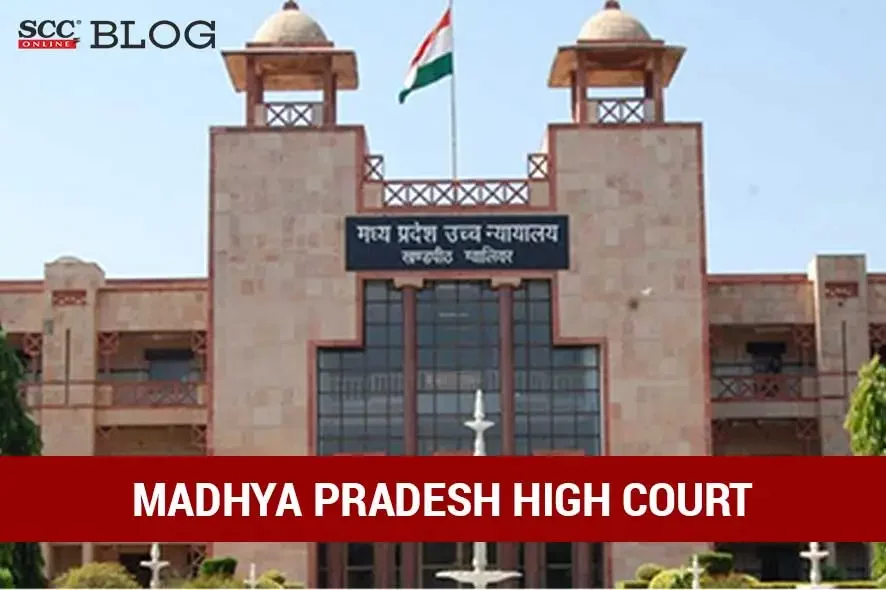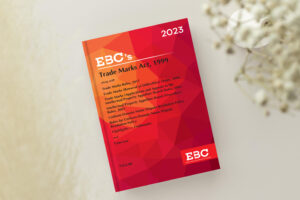Madhya Pradesh High Court: In an appeal challenging the rejection of the appellant-plaintiffs’ application for a temporary injunction, claiming errors in the evaluation of trademark similarity and the application of legal principles, a Division bench comprising of S. A. Dharmadhikari and Pranay Verma,* JJ., examined the visual, phonetic, and structural aspects of the trademarks, highlighted differences in bottle shape, label patterns, and overall appearance and emphasised on the absence of prima facie similarity and ruled out trademark infringement. The Court found no visual, phonetic, or structural similarity between the marks, and there was no evidence of the plaintiff’s elements acquiring secondary meaning. The Court held that there was no prima facie case of trademark infringement.
Brief Facts
In the instant matter, the plaintiffs, engaged in the business of manufacturing and distributing wines, liquors, and spirits, filed an appeal under Order 43 Rule 1(r) of the Civil Procedure Code, 1908 (CPC) read with Section 13 of the Commercial Courts Act, 2015. The appeal is preferred against the order dated 26-11-2020, where the Commercial Court, Indore, rejected the plaintiffs’ application for a temporary injunction under Order 39 Rule 1 and 2 of the CPC.
The alleged dispute revolves around the alleged infringement of the plaintiffs’ registered trademarks (‘Blenders Pride,’ ‘Imperial Blue,’ and ‘Seagram’s’) by the defendant’s product named ‘London Pride.’
The plaintiffs filed an application for a temporary injunction, seeking to restrain the defendant from manufacturing, selling, or advertising ‘London Pride’ under trademarks similar to plaintiffs’ marks. The trial court rejected the application, emphasizing the dissimilarities in packaging, style, shape, and overall presentation between the two brands. The Trial Court held that the word ‘Pride’ was commonly used, and exclusivity could not be attributed to the plaintiffs. It concluded that no similarity existed that would deceive consumers.
Plaintiffs’ Contentions
The plaintiffs claimed to be proprietors of registered trademarks, including ‘Blenders Pride’ since 1973 and ‘Imperial Blue’ since 1997. The defendant is accused of imitating the plaintiffs’ trademarks, causing confusion, and practicing misrepresentation and fraud. The plaintiffs sought permanent injunctions, delivery of infringing materials, an account of profits, and damages amounting to one crore rupees.
The plaintiffs argued that the trial court erred in splitting the word ‘Pride’ for comparison, contravening Section 28(1) of the Trade Marks Act, 1999 and the overall similarity between the trademarks was not adequately considered. It was contended that the trial court did not apply the viewpoint of a consumer with an imperfect recollection, leading to an incorrect assessment. It was further contended that the defendant’s alleged dishonest adoption of registered trademarks constitutes an actionable tort, justifying a temporary injunction. Moreover, registration of copyright does not permit infringement of registered trademarks.
Defendant’s Contentions
The defendant asserted that the trial court’s decision was well-founded, emphasizing the lack of overall similarity between the trademarks. It was contended that mere prima facie case is insufficient; plaintiffs must prove actual damages or irreparable harm, which they failed to do. It was further argued that refusal of temporary injunction is justifiable since monetary compensation can remedy any harm suffered by the plaintiffs.
Court’s Assessment
-
Principles for granting interim injunction
The Supreme Court, in Colgate Palmolive (India) Ltd. v. Hindustan Lever Ltd., (1999) 7 SCC 1, outlined the principles for granting interim injunctions pending a suit. These principles include:
-
Non-expression of opinion on the merits of the matter by the court at the early stage.
-
Considerations such as the extent of damages as a remedy, protection of plaintiff’s rights, strength of the parties’ cases, flexibility in granting relief, irreparable loss to the plaintiff on refusal of the injunction, and the balance of convenience.
-
The court should consider the impact on the general public’s interests.
-
Appellate Court’s interference in refusal of temporary injunction
The Court observed that the appellate court should not interfere with the trial court’s exercise of discretion in refusing a temporary injunction unless the trial court acted illegally, perversely, or arbitrarily. It was observed that merely having two possible views is insufficient to dislodge the trial court’s order.
-
Exercise of discretion by the Trial Court
The Court cited Mohd. Mehtab Khan v. Khushnuma Ibrahim, (2013) 9 SCC 221, where the Supreme Court reiterated that the appellate court should not substitute its discretion for that of the trial court unless the trial court’s exercise of discretion is palpably incorrect or untenable.
-
Examination of Trademark similarity
The Court emphasized the need to compare trademarks as a whole and considered visual, phonetic, and structural similarity. The court examined the bottles, boxes, and labels of the respective products in detail.
-
Registration of marts of a Mark
The Court highlighted Section 17 of the Trade Marks Act, stating that registration of a trademark confers exclusive rights to the use of the mark as a whole. No exclusive right is conferred for parts unless separately registered.
-
Consumer perception and deceptive similarity
The Court considered the nature of consumers, stating that the test of deceptive similarity depends on the education and intelligence of buyers. The Court cited several judgments where the courts held that educated and discerning buyers are less likely to be confused.
“Merely by using word ‘Pride’ in its trademarks it cannot be said that defendant has imitated plaintiff’s trademarks.”
Court’s Decision
Upon examining the bottles, boxes, and labels, the Court found no actual similarity between the defendant’s mark “London Pride” and the plaintiff’s mark “Blenders Pride.” The Court held that the plaintiff failed to establish deceptive similarity and that the trial court’s decision was just and legal. The appeal was dismissed, directing the trial court to proceed with the matter on merits expeditiously.
[Pernod Ricard India (P) Ltd. v. Karanveer Singh Chhabra, 2023 SCC OnLine MP 3956, order dated 03-11-2023]
*Judgment by Justice Pranay Verma
Advocates who appeared in this case :
Shri Amit Agrawal, Senior Advocate with Shri Manoj Manav, Counsel for the Appellants
Shri S.C. Bagadiya, Senior Advocate with Shri Ayush Jain, Counsel for the Respondent







